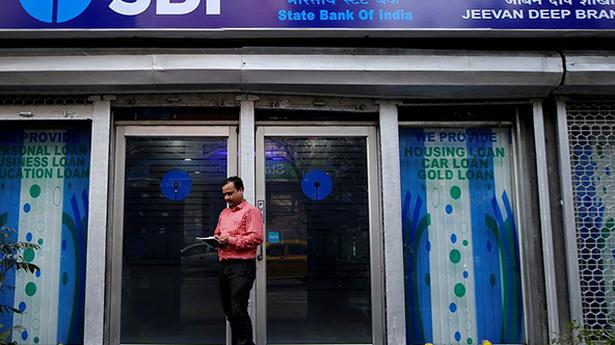
SBI to float dedicated branches for start-ups
The Hindu
SBI will open its first exclusive start-up branch at Innovation Tower, HSR Layout, Bengaluru. Subsequently, with the help of KDEM, it will open more such branches in Mysuru, Mangaluru, Hubballi and Belagavi.
State Bank of India (SBI) has decided to float dedicated branches to offer collateral-free financial assistance upto ₹2 crore to start-up entrepreneurs in the country.
To start with, the PSU bank has entered into a memorandum of understanding with Karnataka Digital Economy Mission (KDEM), a body which has a mandate to grow the size of the state’s digital economy, to open its first exclusive branch for entrepreneurs.
Under the MoU, SBI would be able to offer financial support to start-ups that are recognised by the state government and supported by KDEM. Karnataka already has over 750 start-ups under its Elevate Scheme while over 1,000 ventures are expected to be supported through this MoU, said officials at a media conference here on Friday.
Rana Ashutosh Kumar Singh, SBI Deputy Managing Director (transaction banking & new initiatives) said this move was aimed at unleashing the potential of unused funds that were lying in the Credit Guarantee Fund Trust for Micro and Small Enterprises (CGTSME).
“CGTSME is underutilised. We are trying to design a product for start-up assistance to make it more focused and effective. We are starting it with Karnataka, the start-up capital. We will shortly announce the name of the initiative and further details,” said Mr. Singh.
CGTMSE is a scheme set up jointly by the Ministry of Micro, Small & Medium Enterprises, Government of India and Small Industries Development Bank of India to catalyse flow of institutional credit to Micro and Small Enterprises.

The Union Budget unveiled on February 1, 2025, has come at a time of unprecedented global uncertainty and a flagging domestic economy. The real GDP growth is estimated at 6.4% for 2024-25 and between 6.3-6.8% for 2025-26, a far cry from >8 percent growth required annually to make India a developed nation by 2047. While much attention has been devoted to the demand stimulus through income tax cuts, not enough is said about the proposed reforms in urban development, tariff rationalisation, and regulatory simplification aimed at making Indian cities and corporates more competitive. Since the majority of economic activity is located in cities (urban areas account for ~55% of GDP) and produced by large corporates (~40% of the national output and 55% of India’s exports), the above-mentioned reforms have a pivotal role in improving India’s trend growth rate. Below we unpack each reform.












